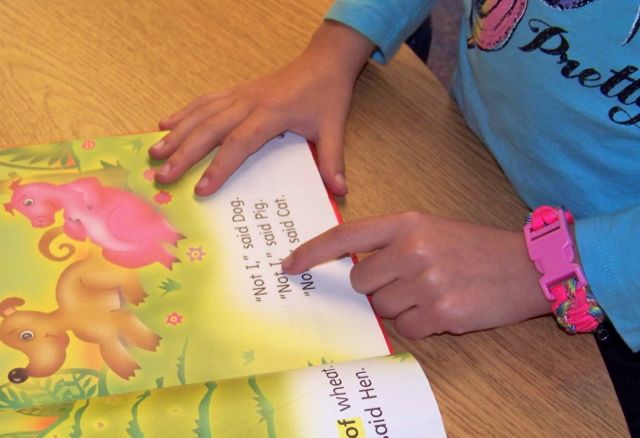
Understanding Dyslexia: A Day In The Life Perspective
January 19, 2022
Springer, in a Word
February 9, 2022
During the 1st session of the program “ An Introduction to Dyslexia: Part 1”, a parent asked about the quality of a specific Reading program used in their school’s curriculum. In doing some research I discovered that there are private non profit organizations that study the extent to which published reading programs align with the Science of Reading.
In a January 2020 article about a national survey conducted by EdWeek Research Center, 72% of K-2 teachers reported using “Balanced Literacy” to teach reading. The specific published reading program cited most often by teachers was Fountas and Pinnel Leveled Literacy, representing 43% of the market.
www.EdReports.org evaluates educational materials for grades K through 12. In their assessment, the Fountas and Pinel program received a “failing” rating. Ed Reports noted that the program allotted minimal time during lessons for “teaching decoding skills and spelling patterns”. This particular reading program and other popular reading programs, use “cueing” as part of reading instruction, directing the student to look at the pictures, look at the words around the unknown word, look at the first letter of the unknown word and make a guess. These are the same strategies used by poor readers, as outlined in the report of the National Reading Panel 2000.
Other states with “Right to Read” laws, for example Arkansas, specify:
The Right to Read Act, amended by the Arkansas Legislature in 2019, requires “curriculum programs that are supported by the science of reading and based on instruction that is explicit, systematic, cumulative, and diagnostic, including without limitation: (1) dyslexia programs that are evidence based and aligned or structured literacy or grounded in the Orton-Gillingham methodology, (2) evidence-based reading intervention programs, and (3) evidence-based reading programs that are grounded in the science of reading.” Arkansas Division of Elementary and Secondary Education.

If you are concerned about the reading curriculum at your school, try the website for EdReports, or search online using the name of the program. Look for information from organizations or individuals who have no financial interest in the particular reading program. Interdys.org is the website of the International Dyslexia Association, where you can find information on specific reading programs for students with dyslexia.
Blogger Mary Ann Mulcahey, PhD, shares her expertise in assessment and diagnosis of learning disabilities and ADHD, and the social/emotional adjustment to those issues. If you have questions, please contact Mary Ann at .



